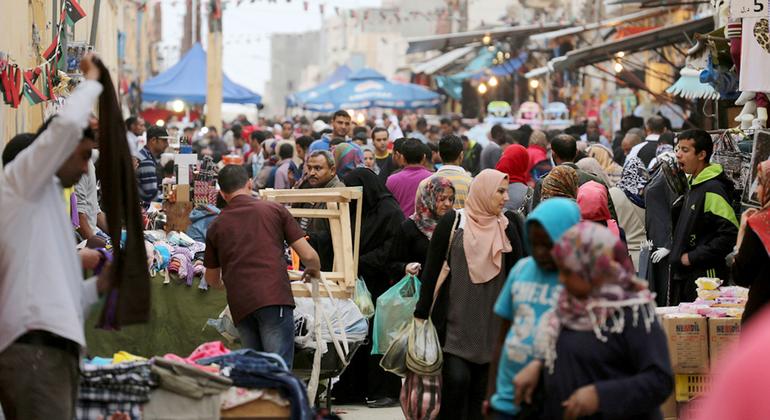As local elections in Libya unfold amid multiple difficulties, Hanna S. Tetteh, head of the United Nations political mission in the country, has issued an urgent call to the international community and local actors to come together in the search for solutions to end nearly 15 years of instability. Since the fall of former dictator Muammar Gaddafi in 2011, Libya has been embroiled in a complex crisis, and Tetteh warns that “inaction would be more costly than change.”
Tetteh, who took office in February, has conducted a series of consultations throughout the territory, finding that, despite differences in positions on the political future, there is a general consensus on the need to hold elections. At a recent meeting of the UN Security Council, she emphasized the importance of deciding whether a constitutional framework prior to the elections is necessary or if they should be held without delay.
One of the main obstacles in Libyan politics is the fragmentation of institutions, exacerbated by competition for economic resources. The lack of a unified national budget has led to severe economic imbalances, including inflation and the depreciation of the Libyan dinar. Tensions are rising around the management of public resources, especially following the recent currency devaluation, prompting some local voices to call for an independent audit of the country’s finances, an issue the UN is addressing with financial management experts.
While progress has been limited, Tetteh has pointed to efforts such as the cessation of crude oil swaps for fuel, which would represent a step towards greater transparency in resource management and a fairer distribution of revenues. In the electoral sphere, the second phase of municipal elections, including 62 localities, has seen over 570,000 voters registered, with a third of them being women. Tetteh has described these elections as crucial for establishing democratic governance at the local level. However, interference in the electoral process, such as that seen in Harawa, where winners were replaced by de facto authorities, has raised concerns about the credibility of the process.
The security situation in the country poses another essential challenge, despite the ceasefire declared in 2020. Recent mobilizations of armed groups in Tripoli have raised fears of a potential resurgence of violence. Additionally, human rights violations, including arbitrary detentions and violence against migrants, have increased in an environment characterized by the impunity of armed groups.
Tetteh has called for an end to attacks on humanitarian organizations and emphasized the need to pass a law protecting women from violence. The UN, along with the African Union, is promoting a reconciliation process that respects the rights of victims.
The future of Libya depends on the ability of local political actors to reach inclusive consensus. Tetteh has stressed that “political will for compromise is essential to develop a consensus roadmap to end the political crisis.” The involvement of regional powers through coordinated international cooperation will be crucial to finding a lasting solution to the country’s prolonged crisis. In a context of rivalries and social fatigue, inaction is no longer a viable option.
Referrer: MiMub in Spanish










